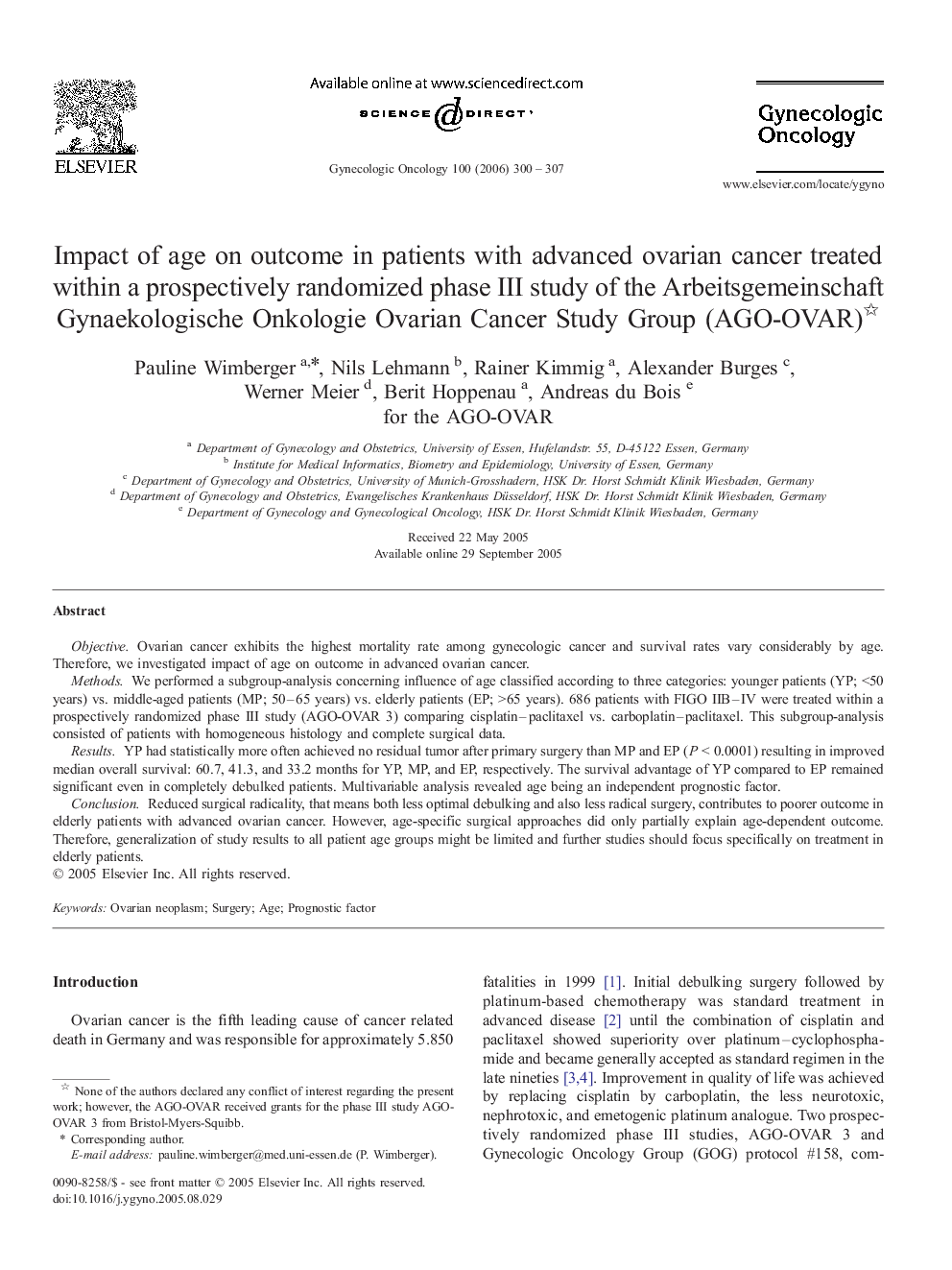| Article ID | Journal | Published Year | Pages | File Type |
|---|---|---|---|---|
| 3945306 | Gynecologic Oncology | 2006 | 8 Pages |
Objective.Ovarian cancer exhibits the highest mortality rate among gynecologic cancer and survival rates vary considerably by age. Therefore, we investigated impact of age on outcome in advanced ovarian cancer.Methods.We performed a subgroup-analysis concerning influence of age classified according to three categories: younger patients (YP; <50 years) vs. middle-aged patients (MP; 50–65 years) vs. elderly patients (EP; >65 years). 686 patients with FIGO IIB–IV were treated within a prospectively randomized phase III study (AGO-OVAR 3) comparing cisplatin–paclitaxel vs. carboplatin–paclitaxel. This subgroup-analysis consisted of patients with homogeneous histology and complete surgical data.Results.YP had statistically more often achieved no residual tumor after primary surgery than MP and EP (P < 0.0001) resulting in improved median overall survival: 60.7, 41.3, and 33.2 months for YP, MP, and EP, respectively. The survival advantage of YP compared to EP remained significant even in completely debulked patients. Multivariable analysis revealed age being an independent prognostic factor.Conclusion.Reduced surgical radicality, that means both less optimal debulking and also less radical surgery, contributes to poorer outcome in elderly patients with advanced ovarian cancer. However, age-specific surgical approaches did only partially explain age-dependent outcome. Therefore, generalization of study results to all patient age groups might be limited and further studies should focus specifically on treatment in elderly patients.
